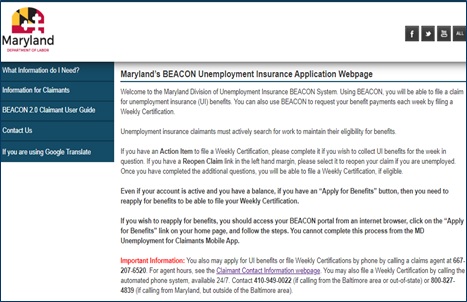If you’re receiving unemployment benefits, taking on work from home jobs can impact your eligibility. It’s important to understand the specific regulations and guidelines in your state to avoid any potential issues with your benefits.
With the rise of remote work opportunities, many individuals are exploring work from home jobs as a way to supplement their income while on unemployment. However, it’s crucial to be aware of how these earnings can affect your unemployment benefits.
By understanding the rules and regulations set forth by your state’s unemployment agency, you can ensure that you remain compliant while pursuing remote job opportunities. We’ll explore the implications of taking on work from home jobs while receiving unemployment benefits and provide guidance on how to navigate this situation effectively.
Rise Of Remote Work
Shift In Employment Trends
In recent years, the landscape of employment has seen a significant transformation towards remote work opportunities.
This shift has opened up new avenues for individuals seeking flexible work options.
Technology Enabling Work From Home
The advancement of technology has played a crucial role in enabling the rise of remote work.
Tools like video conferencing and collaboration platforms have made remote work more efficient and accessible.

Credit: labor.maryland.gov
Unemployment Benefits Explained
Discover how work-from-home jobs can impact your eligibility for unemployment benefits. Unpack the nuances of claiming benefits while working remotely to navigate the process smoothly. Understand the rules and regulations to make informed decisions about your financial support.
If you have lost your job or experienced a reduction in working hours due to COVID-19, you may be eligible for unemployment benefits. Unemployment benefits are designed to provide financial assistance to individuals who are out of work through no fault of their own. In this post, we will explain the eligibility criteria for unemployment benefits and how they are calculated.Criteria For Eligibility
To be eligible for unemployment benefits, you must meet certain criteria. Firstly, you must have lost your job or experienced a reduction in working hours due to COVID-19. Secondly, you must have earned a minimum amount of wages during a specific period, which varies depending on the state you live in. In addition, you must be able and available to work, actively seeking work, and not refuse any suitable job offers.How Benefits Are Calculated
Unemployment benefits are calculated based on a percentage of your previous earnings, up to a certain maximum amount. The exact percentage and maximum amount vary by state. In general, the more you earned before becoming unemployed, the higher your unemployment benefits will be. Additionally, some states may offer additional benefits for dependents or those with disabilities. It is important to note that unemployment benefits are taxable income. You may choose to have taxes withheld from your benefits or pay them later when you file your tax return. In conclusion, understanding the eligibility criteria and how unemployment benefits are calculated is crucial for those who have lost their job or experienced a reduction in working hours due to COVID-19. By applying for unemployment benefits, you can receive financial assistance while you search for new employment opportunities.Home-based Jobs And Unemployment
With the rise of work-from-home opportunities, the relationship between home-based jobs and unemployment has become a prominent topic of discussion. This shift in work dynamics has both positive and negative impacts on traditional employment while also posing challenges in quantifying remote work.
Impact On Traditional Employment
Remote work has altered the landscape of traditional employment, affecting job availability and career paths.
Challenges Of Quantifying Remote Work
Quantifying the impact of remote work on unemployment rates presents challenges due to varying definitions and data collection methods.
Eligibility For Remote Workers
Remote work has become a popular option for many individuals seeking employment, especially in light of the ongoing global pandemic. As the workforce continues to adapt to this new norm, it’s important for remote workers to understand their eligibility for unemployment benefits. Knowing the qualifications, exceptions, and considerations can provide clarity and assistance during uncertain times. Let’s delve into the specifics of eligibility for remote workers seeking unemployment benefits.
Qualifying For Benefits
Remote workers can be eligible for unemployment benefits if they meet certain criteria, such as being laid off or experiencing a significant reduction in hours. In addition, individuals must have a work history and have contributed to the unemployment insurance program through their previous employment. It’s essential for remote workers to diligently document their job search efforts and remain available for suitable work opportunities to maintain eligibility.
Exceptions And Considerations
While remote workers are generally eligible for unemployment benefits, there are exceptions and unique considerations to be aware of. For instance, independent contractors and gig workers may not qualify for traditional unemployment benefits but could be eligible for pandemic-related assistance programs. Additionally, remote workers who voluntarily left their jobs may face challenges in qualifying for benefits, unless they can demonstrate valid reasons such as unsafe working conditions or harassment.
Application Process For Remote Workers
When it comes to applying for unemployment benefits as a remote worker, the process may differ slightly from traditional employment. Remote workers have specific documentation requirements and may need to navigate online application systems tailored to their work-from-home status. Understanding the application process for remote workers is crucial in ensuring a smooth and successful application for unemployment benefits.
Documentation Requirements
Remote workers seeking unemployment benefits must provide specific documentation to support their claim. This may include:
- Proof of remote work status, such as a telecommuting agreement or remote work policy from the employer.
- Documentation of work hours and tasks performed, which can be evidenced through timesheets, project reports, or communication records.
- Proof of income, such as pay stubs or bank statements, to establish eligibility for benefits.
Online Application Systems
Remote workers often utilize online application systems to apply for unemployment benefits. These systems are designed to accommodate the unique circumstances of remote employment. When applying, remote workers should ensure that they:
- Provide accurate information about their remote work arrangement, including the nature of their job and their employer’s details.
- Complete all required fields related to their remote work status and income, ensuring that the information provided aligns with their documentation.
- Follow any specific instructions for remote workers, which may include additional questions or documentation requests tailored to their work-from-home situation.
Legal Aspects Of Work From Home
Working from home has become increasingly common, leading to a shift in the legal landscape. Understanding the contractual obligations and rights of remote employees is crucial in this evolving work environment.
Contractual Obligations
- Employment contracts for remote work should clearly outline expectations and responsibilities.
- Agreements should address work hours, communication protocols, and performance evaluation criteria.
- Clarity in contractual terms helps prevent disputes and ensures a smooth working relationship.
Rights Of Remote Employees
- Remote employees are entitled to the same legal protections as in-office workers.
- Fair treatment and access to benefits like healthcare and paid time off are essential.
- Employers must respect privacy rights and provide necessary tools for remote work.
Success Stories Of Remote Employment
With the rise of work from home jobs, more and more people are finding success in remote employment. These success stories are not just limited to financial gains, but also include a better work-life balance, improved mental health, and increased job satisfaction.
Transitioning From Unemployment
For those who have been struggling with unemployment, work from home jobs can offer a lifeline. These jobs not only provide a source of income but also allow individuals to gain new skills, stay connected to the workforce, and maintain a sense of purpose.
One example of this is John, who was laid off from his job due to the pandemic. He struggled to find work for several months until he landed a remote customer service job. Not only did this job provide him with a steady income, but he was also able to work from the comfort of his own home, avoiding the daily commute and the stress that came with it.
Thriving In A Virtual Environment
Remote work can also offer unique opportunities for individuals to thrive in a virtual environment. This is particularly true for those who may have struggled with traditional office environments due to physical or mental health conditions.
One such individual is Sarah, who has a chronic illness that makes it difficult for her to maintain a regular work schedule. She found a remote writing job that allowed her to work on her own schedule and from her own home. This not only allowed her to manage her health better but also gave her the flexibility she needed to be productive and successful in her work.
In Conclusion
These success stories are just a few examples of the many benefits that work from home jobs can offer. Whether you are looking for a source of income after a period of unemployment or seeking a more flexible and fulfilling work environment, remote employment may be the solution you are looking for.

Credit: www.jobs.state.nm.us
Resources And Support
Resources and Support:
Amid the shift towards remote work and the challenges presented by unemployment, individuals can access a variety of resources and support systems to navigate these uncertain times effectively.
Governmental Assistance Programs
Various governmental assistance programs are available to support individuals facing unemployment, offering financial aid and resources to help them through difficult periods.
Community And Online Support Networks
Engaging with community and online support networks can provide valuable emotional and professional assistance to those adapting to work-from-home roles or dealing with unemployment.
Future Of Remote Work And Unemployment
As the world navigates through the challenges of the modern workforce, the future of remote work and unemployment has become a focal point of discussion. In the wake of the global pandemic, many industries have shifted towards remote work, prompting a closer examination of the evolving nature of work and its impact on unemployment. Let’s delve into the potential trends and implications for the job market in the coming years.
Predicting Job Market Trends
The job market is undergoing a significant transformation, with remote work becoming increasingly prevalent. Companies are recognizing the benefits of remote positions, leading to a surge in job opportunities for individuals seeking flexible work arrangements. The demand for remote positions is expected to rise, offering a glimmer of hope for those facing unemployment challenges.
Evolving Nature Of Work
The nature of work is evolving at a rapid pace, driven by technological advancements and changing workplace dynamics. This shift has led to a reimagining of traditional job roles, with a growing emphasis on digital skills and remote collaboration. As the workforce adapts to these changes, the potential for remote work to mitigate unemployment concerns becomes more apparent.

Credit: www.capradio.org
Frequently Asked Questions
What Disqualifies You For Unemployment In Texas?
You may be disqualified for unemployment in Texas if you quit your job without good cause, were fired for misconduct, or refused suitable work.
What Reasons Can You Be Denied Unemployment In Texas?
You can be denied unemployment in Texas if you were fired for misconduct or quit without good cause. Additionally, if you refuse suitable work or fail to actively seek employment, you may also be denied benefits.
How Many Hours Can You Work And Still Get Unemployment In Texas?
In Texas, you can work part-time and still receive unemployment benefits based on the hours worked.
What Does The Texas Workforce Help With?
The Texas workforce provides assistance with job training, job search resources, unemployment benefits, and career development.
Conclusion
Work-from-home jobs can be a valuable option for those seeking unemployment benefits. These opportunities provide flexibility and income potential. By exploring remote work options, individuals can enhance their financial stability while adapting to the changing job market. Embracing remote work could be a positive step forward.



